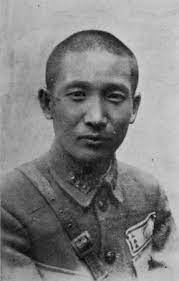Chang Wen-t'ien (1898-), known as Lo-fu, a writer and translator, was one of a group of Russian-trained Chinese Communists known as the 28 Bolsheviks. General secretary of the Chinese Communist party in the mid-1 930's, he was ambassador to the Soviet Union 1951-55 and senior vice minister of foreign affairs 1955-59. Nanhui, a suburb of […]




